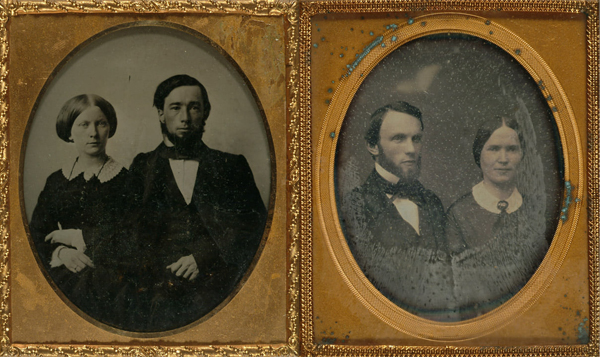PRAY for #UKRAINE
They are bringing the bodies out of my hotel pic.twitter.com/hjDHjOlQIM
— Daniel Sandford (@BBCDanielS) February 20, 2014
Live Updates: Crisis in Ukraine
FOX News: EU reportedly agrees to impose sanctions on Ukraine as truce falls apart
Reuters: After Ukraine’s bloodiest day, EU tries to broker peace
BBC: Ukraine unrest: EU sanctions imposed
FOX News: Following whipping, anti-Putin punk band posts new video criticizing Sochi Games
CNN: Truce ends, death toll rises in Ukraine
BBC: Why is Ukraine in turmoil?
PUBLICATIONS and NOTABLE MENTIONS
European Legal Cultures in Transition By Grødeland, Åse B. Miller, William Lockley (p. 522)
European Pentecostalism by William Kay; Anne Dyer. Series: Global Pentecostal and Charismatic Studies (p. 242-43)
Global Temperance and the Balkans: American Missionaries, Swiss Scientists and Bulgarian Socialists, 1870–1940 By Nikolay Kamenov.
Brother Doni[y] Donev always found time to respite from his theological studies in order to instruct me in the factual history of the Protestantism in BULGARIA…
Dave Emmett in his W.F.P. Burton (1886-1971): A Pentecostal Pioneer’s Missional Vision for Congo, 2020 (p. 84 and 315) on Pentecostal Primitivism
Journal of European Baptist Studies: Historiography of Baptists in Russia
Authors: Wardin, Albert of the Baptist Convention’s Historical Library and Archives
“With the help of an American Pentecostal of Bulgarian descent, Dony Donev, and the archives of the Assembly of God in the USA, I have assembled an extensive collection of material on the Voronaev movement.”
Charismatic Reformer, Mystic or Father? The Reception of Symeon the New Theologian by Pentecostal/Charismatic Theologians.
by Lysack, Maxym Faculty of Theology, Saint Paul University
Source: Religions; Jun 2021, Vol. 12 Issue 6, p389
In People of the Spirit : The Assemblies of God By McGee, Gary B.
Ed.: Revised and updated. Springfield, Missouri : Gospel Publishing House. 2014
In Religion and Politics in Post-Socialist Central and Southeastern Europe
Challenges Since 1989 on behalf of the East-West Church and Ministry Report
ALSO Church, State, and Democracy in Expanding Europe
By Lavinia Stan, Lucian Turcescu · 2011-2021
The Politics of Language and Nationalism in Modern Central Europe
By T. Kamusella · 2008
Religion and Politics in Post-Socialist Central and … – Page 284 Sabrina P. Ramet · 2014 ·
im Sinne des bulgarischen Church of God Theologen Dony K. Donev der darin die Bedingung für das (er-)leben ..
Geisterfahrer zwischen Transzendenz und Immanenz – Page 54 Giovanni Maltese · 2013
Church of God Evangel vol. 84 1994
Historical Theology in Brill’s Encyclopedia of Global Pentecostalism
• Voronaev, Ivan Efimovich
• Zaplishny, Dionissy Michailovitch
• Nikolov, Nicholas
• Anna Ladd Bartleman
Recent Biblical Studies for the Pneuma Foundation
• Mission of God Study Bible
• Maxwell Leadership Bible
• Fire Bible
• Spirit Filled Life Bible
• Strange Fire?

When leaders fail to lead themselves
A leader who lacks character or integrity will not endure the test of time. It doesn’t matter how intelligent, affable, persuasive, or savvy a person is, if they are prone to rationalizing unethical behavior based upon current or future needs, they will eventually fall prey to their own undoing. Optics over ethics is not a formula for success.
Cup & Cross Ministries Offers Ministry Leadership Table
Empowered by the vision for a continuous revival within the church of the 21st century, we have chosen to make the mission of our work this one statement: We help churches grow.
One of the approaches we have taken to accomplish this ministry goal is Consulting and Coaching:
- We have successfully worked with over 50 churches toward their effective missions programs and growth through (1) leadership training and team building seminars, (2) in-depth case study of church and ministry evaluations and (3) implementing individually designed strategies for ministry development
- Currently, our team provides continuous education to over 200 church leaders and ministry teams around the world through teaching and lecturing on a weekly basis along with daily prayer support
- We extend our efforts toward church growth by helping build strong family connections through relations counseling and parenting classes implementing play therapy as Board Certified LPC
Beside personal presence and team building strategies, we implement the media in virtually every approach of ministry. We have published several research monographs as well as film series about our ministry work. Our team holds a weekly TV program called the Bible Hour. (Learn how we help churches build their own and unique web presence)
Areas of Ministry:
|
Daily Ministry Reach:
|
Read also: Church of God Eastern Europe Missions: Leadership, Economics and Culture
Bulgarian Congregationalists
Congregationalists (called “Evangelicals” in Bulgaria, the word “Protestant” is not used [3] ) were among the first Protestant missionaries to the Ottoman Empire and to the Northwestern part of the European Ottoman Empire which is now Bulgaria, where their work to convert these Orthodox Christians was unhampered by the death penalty imposed by the Ottomans on Muslim converts to Christianity.[4] These missionaries were significant contributors to the Bulgarian National Revival movement. Today, Protestantism in Bulgaria represents the third largest religious group, behind Orthodox and Muslim. Missionaries from the United States first arrived in 1857–58, sent to Istanbul by the American Board of Commissioners for Foreign Missions (ABCFM). The ABCFM was proposed in 1810 by the Congregationalist graduates of Williams College, MA, and was chartered in 1812 to support missions by Congregationalists, Presbyterian (1812–1870), Dutch-Reformed (1819–1857) and other denominational members.[5] The ABCFM focused its efforts on southern Bulgaria and the Methodist Church on the region north of the Balkan Mountains (Stara Planina, or “Old Mountains”). In 1857, Cyrus Hamlin and Charles Morse established three missionary centres in southern Bulgaria – in Odrin (Edirne, former capital city of the Ottoman Empire, in Turkey), Plovdiv and Stara Zagora. They were joined in 1859 by Russian born naturalized America Frederic Flocken in 1859.[6] American Presbyterian Minister Elias Riggs commissioned, supported and edited the work of Bulgarian monk Neofit Rilski to create a Bible translations into Bulgarian which was then distributed widely in Bulgaria in 1871 and thereafter. This effort was supported by Congregationalist missionary Albert Long, Konstantin Fotinov, Hristodul Sechan-Nikolov and Petko Slaveikov.[7] Reportedly, 2,000 copies of the newly translated Bulgarian language New Testament were sold within the first two weeks.
Congregational churches were established in Bansko, Veliko Turnovo, and Svishtov between 1840 to 1878, followed by Sofia in 1899. By 1909, there were 19 Congregational churches, with a total congregation of 1,456 in southern Bulgaria offering normal Sunday services, Sunday schools for children, biblical instruction for adults; as well as women’s groups and youth groups. Summer Bible schools were held annually from 1896 to 1948.[8]
Congregationalists led by Dr James F. Clarke opened Bulgaria’s first Protestant primary school for boys in Plovdiv in 1860, followed three years later by a primary school for girls in Stara Zagora. In 1871 the two schools were moved toSamokov and merged as the American College, now considered the oldest American educational institution outside the US. In 1928, new facilities were constructed in Sofia, and the Samokov operation transferred to the American College of Sofia (ACS), now operated at a very high level by the Sofia American Schools, Inc.[9]
In 1874, a Bible College was opened in Ruse, Bulgaria for people wanting to become pastors. At the 1876 annual conference of missionaries, the beginning of organizational activity in the country was established. The evangelical churches of Bulgaria formed a united association in 1909.[10]
The missionaries played a significant role in assisting the Bulgarians throw off “the Turkish Yoke”, which included publishing the magazine Zornitsa (Зорница, “Dawn”), founded in 1864 by the initiative of Riggs and Long.[11] Zornitsa became the most powerful and most widespread newspaper of the Bulgarian Renaissance.[12] A small roadside marker on Bulgarian Highway 19 in the Rila Mountains, close to Gradevo commemorates the support given the Bulgarian Resistance by these early Congregationalist missionaries.
On 3 September 1901 Congregationalist missionaries came to world attention in the Miss Stone Affair when missionary Ellen Maria Stone,[13] of Roxbury, Massachusetts, and her pregnant fellow missionary friend Macedonian-Bulgarian Katerina Stefanova–Tsilka, wife of an Albanian Protestant minister, were kidnapped while traveling between Bansko and Gorna Dzhumaya (now Blagoevgrad), by an Internal Macedonian-Adrianople Revolutionary Organization detachment led by the voivoda Yane Sandanski and the sub-voivodas Hristo Chernopeev and Krǎstyo Asenov and ransomed to provide funds for revolutionary activities. Eventually, a heavy ransom (14,000 Ottoman lira (about US$62,000 at 1902 gold prices or $5 million at 2012 gold prices) raised by public subscription in the USA was paid on 18 January 1902 in Bansko and the hostages (now including a newborn baby) were released on 2 February near Strumica—a full five months after being kidnapped. Widely covered by the media at the time, the event has been often dubbed “America’s first modern hostage crisis”.
The Bulgarian royal house, of Catholic German extraction, was unsympathetic to the American inspired Protestants, and this mood became worse when Bulgaria sided with Germany in WWI and WWII.[14] Matters became much worse when the Bulgarian Communist Party took power in 1944. Like the Royal Family, it too saw Protestantism closely linked to the West and hence more politically dangerous than traditional Orthodox Christianity. This prompted repressive legislation in the form of “Regulations for the Organization and Administration of the Evangelical Churches in the People’s Republic of Bulgaria” and resulted in the harshest government repression, possibly the worst in the entire Eastern Bloc, intended to extinguish Protestantism altogether. Mass arrests of pastors (and often their families), torture, long prison sentences (including four life sentences) and even disappearance were common. Similar tactics were used on parishioners. In fifteen highly publicized mock show-trials between 8 February and 8 March 1949, all the accused pastors confessed to a range of charges against them, including treason, spying (for both the US and Yugoslavia (!)), black marketing, and various immoral acts. State appointed pastors were foist on surviving congregations. As late as the 1980s, imprisonment and exile were still employed to destroy the remaining Protestant churches. The Congregationalist magazine “Zornitsa” was banned; Bibles became unobtainable.[15] As a result, the number of Congregationalists is small, and estimated by Paul Mojzes in 1982 to number about 5,000, in 20 churches. (Total Protestants in Bulgaria were estimated in 1965 to have been between 10,000 and 20,000.)[16] More recent estimates indicate enrollment in Protestant (“Evangelical” or “Gospel”) churches of between 100,000 and 200,000,[17] presumably reflecting the success of more recent missionary efforts of evangelical groups. The United Church of Christ has been described as “the historic continuation of the Congregational churches”.[18]
Leaders who can’t see it
Leaders who can’t see it, probably won’t find it: Leaders without vision will fail. Leaders who lack vision cannot inspire teams, motivate performance, or create sustainable value. Poor vision, tunnel vision, vision that is fickle, or a non-existent vision will cause leaders to fail. A leader’s job is to align the organization around a clear and achievable vision. This cannot occur when the blind lead the blind.

Cup & Cross Ministries Offers Ministry Leadership Table
Empowered by the vision for a continuous revival within the church of the 21st century, we have chosen to make the mission of our work this one statement: We help churches grow.
One of the approaches we have taken to accomplish this ministry goal is Consulting and Coaching:
- We have successfully worked with over 50 churches toward their effective missions programs and growth through (1) leadership training and team building seminars, (2) in-depth case study of church and ministry evaluations and (3) implementing individually designed strategies for ministry development
- Currently, our team provides continuous education to over 200 church leaders and ministry teams around the world through teaching and lecturing on a weekly basis along with daily prayer support
- We extend our efforts toward church growth by helping build strong family connections through relations counseling and parenting classes implementing play therapy as Board Certified LPC
Beside personal presence and team building strategies, we implement the media in virtually every approach of ministry. We have published several research monographs as well as film series about our ministry work. Our team holds a weekly TV program called the Bible Hour. (Learn how we help churches build their own and unique web presence)
Areas of Ministry:
|
Daily Ministry Reach:
|


![s_k01_70616745[1]](https://cupandcross.com/wp-content/uploads/2014/02/s_k01_706167451.jpg)








